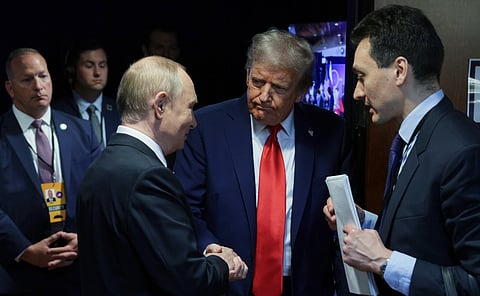

Russian President Vladimir Putin has proposed extending the central numerical limits of the New START Treaty for one year beyond its expiration on February 5, 2026.
The treaty, signed in 2010, caps deployed strategic nuclear warheads at 1,550 for both Russia and the United States, the world’s largest nuclear powers.
Putin’s offer, announced during a Security Council meeting in Moscow, aims to preserve strategic stability amid rising global tensions.
The proposal comes as the treaty nears its end, with no formal talks yet underway to renew or replace it.
Putin emphasized that abandoning the treaty entirely would be “short-sighted” and could undermine global non-proliferation efforts.
He argued that maintaining the status quo is critical to avoiding a new strategic arms race and ensuring predictability in nuclear capabilities.
Russia’s willingness to adhere to the treaty’s limits for an additional year is contingent on reciprocal actions from the United States.
Putin warned that U.S. moves to enhance missile defenses or deploy interceptors in space could disrupt the balance of deterrence, potentially prompting Russia to reconsider its commitment.
The proposal coincides with heightened East-West tensions, exacerbated by the ongoing war in Ukraine and U.S. calls for harsher sanctions on Russia.
Putin’s offer appears to be a unilateral policy shift, as Moscow had previously tied arms control talks to broader improvements in U.S.-Russia relations.
There has been no immediate response from Washington, though U.S. officials have expressed interest in negotiating a new arms control agreement, potentially involving China, which Beijing has rejected.
Putin stated Russia would closely monitor U.S. nuclear and defense activities, reserving the right to respond with “military-technical measures” if necessary.